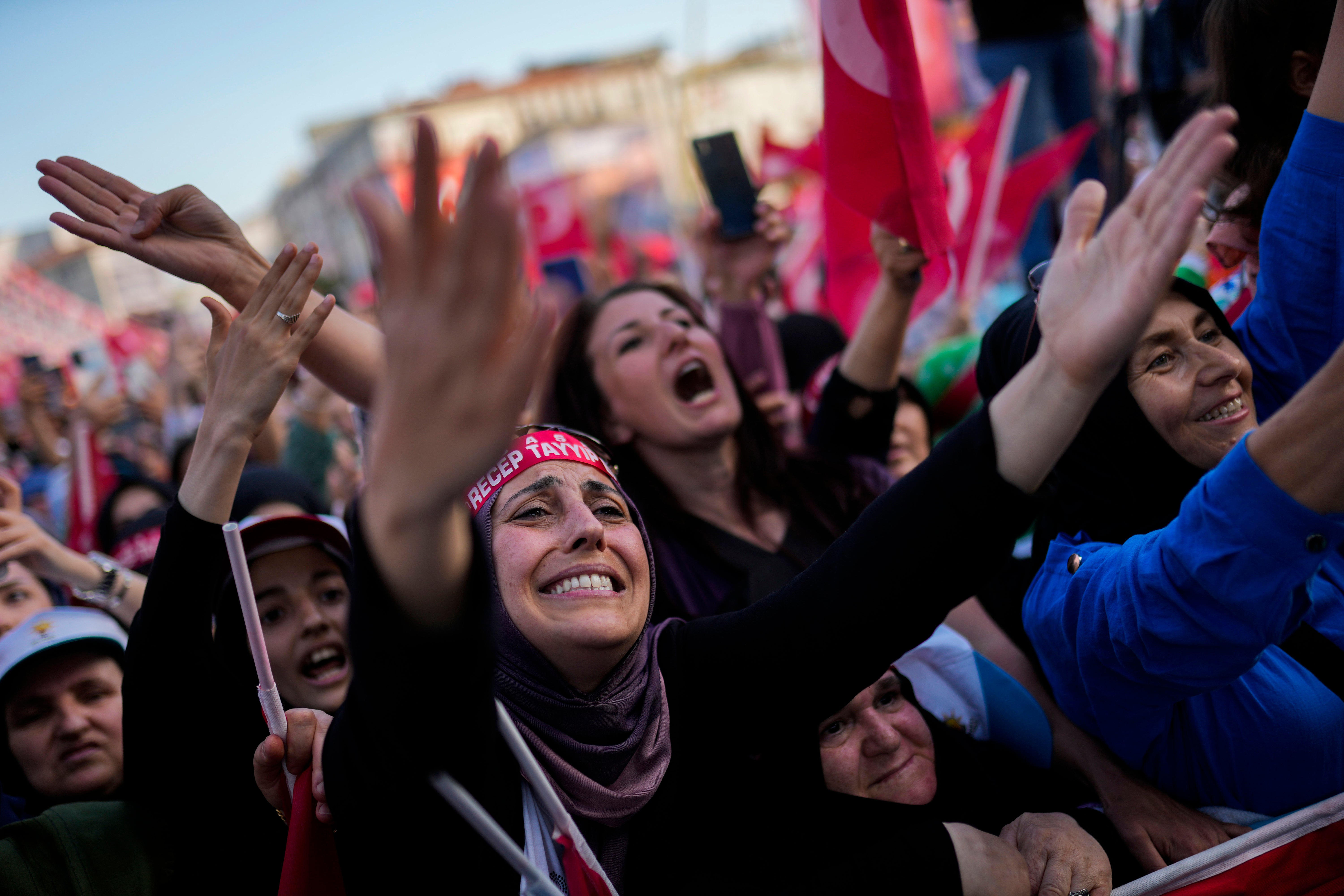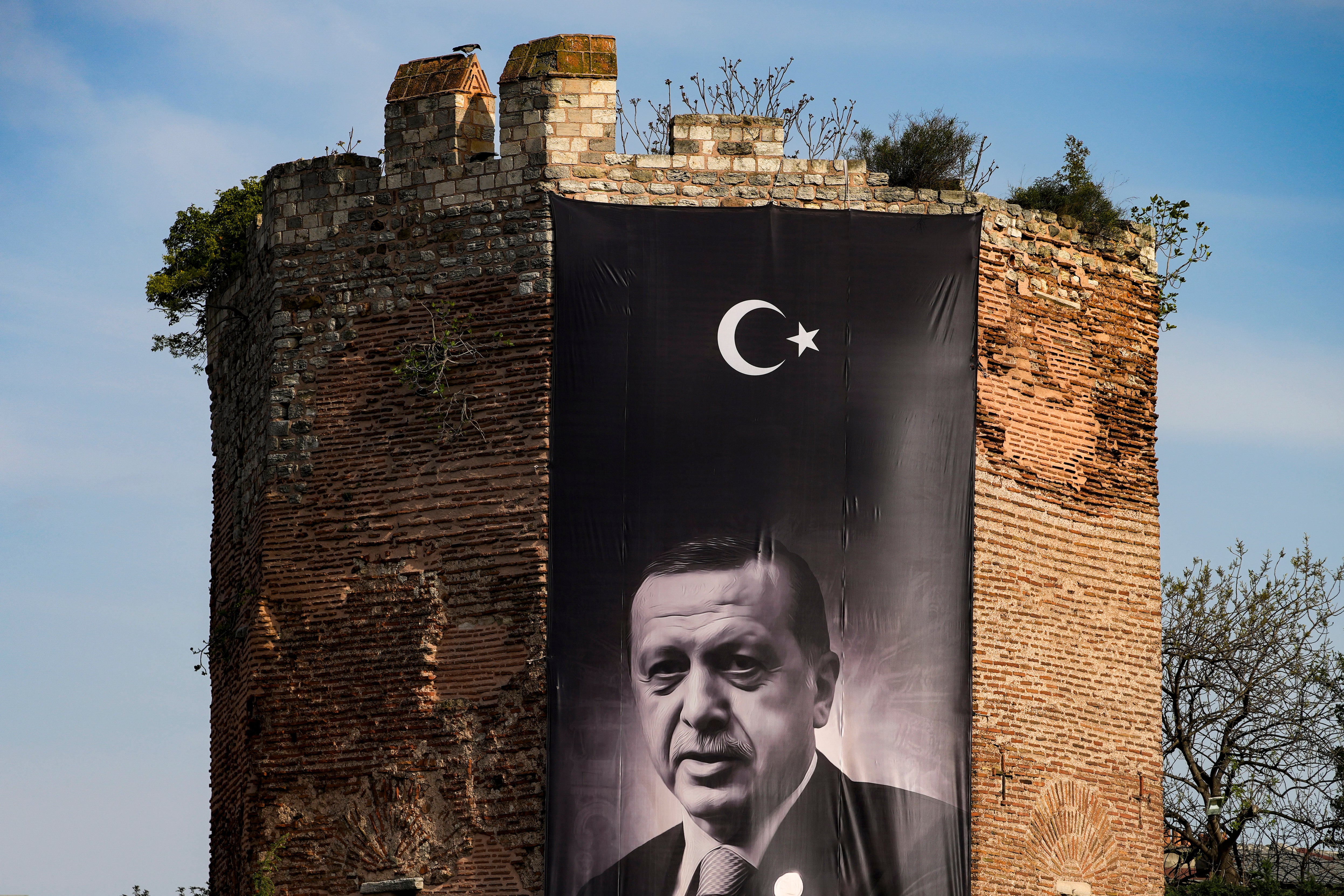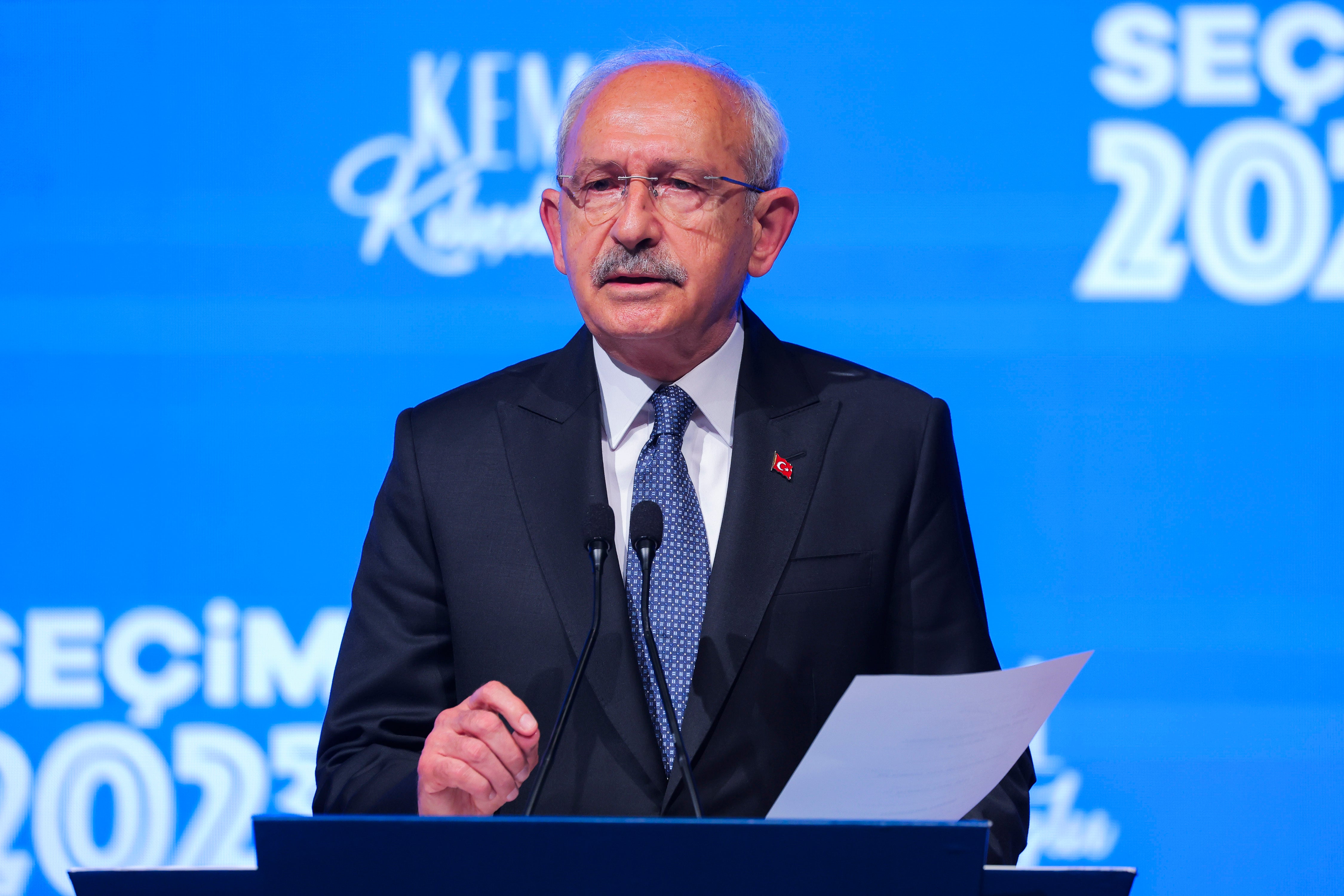Why Turkey’s presidential run-off matters for the world
President Recep Tayyip Erdogan appears on course to extend his 20 years in power, as a man who charts his own path whatever the consequences for allies, writes Chris Stevenson


Two weeks ago, Recep Tayyip Erdogan and Turkey – the country he leads – stood at a crossroads. After 20 years in power, either as prime minister or president, there was rising optimism among an energised opposition that he could be forced out via the ballot box.
A six-party-strong coalition had united behind the leader of the Republican People’s Party (CHP), Kemal Kilicdaroglu, and the soft-spoken 74-year-old had the lead in opinion polls prior to the presidential election. Perhaps not enough to win outright in the first round of voting – a candidate would need more than 50 per cent of the vote – but certainly enough to force a run-off with Erdogan, who heads the Justice and Development Party (AKP).
Focusing on the Turkish economy – which has been on a downward spiral for years, with soaring inflation fuelled by Erdogan’s unorthodox policy of keeping interest rates down – Kilicdaroglu’s message ahead of the first round of voting was one of wholesale reform. Allied to anger over the government’s slow response to devastating earthquakes in February that killed 50,000 people, and disquiet among many young people over the authoritarian turn the country has taken as Erdogan has consolidated power around the presidency, opposition parties were confident that the population was ready to usher in a fresh start. Certainly Erdogan looked to be in his most vulnerable position for years.
That run-off is going to happen on Sunday, but the first round of voting did not go the way the polls had suggested. Erdogan took 49.5 per cent of the vote to Kilicdaroglu’s 44.9 per cent, with the pre-election-day surveys having indicated the reverse. Erdogan has the state machine behind him, including control over state media, and has been cracking down on dissent for years. But the result is still likely to have come as a shock to many of Kilicdaroglu’s supporters. Erdogan’s own alliance also secured a majority in the parliamentary election that took place at the same time.
Erdogan and his party have had years in which to build his image – and plenty of experience in winning elections. The same cannot be said of Kilicdaroglu. There are a number of elements to the current president’s image-crafting, but some of the biggest are his nationalist stance, his strongman image both at home and abroad, and his championing of Islamist causes (as opposed to the secular leanings of the CHP). Nationalism – along with what Erdogan sees as the associated issues of migration and security – was one of the defining factors in the first round. And Erdogan also secured the endorsement of the ultranationalist candidate Sinan Ogan, who picked up 5.2 per cent of the vote in the first round of the presidential race.
Erdogan has expanded his existing political alliance with two nationalist parties to include a small Islamist party, and has also secured the backing of a radical Kurdish-Islamist party. This emphasis on religion is important to sections of Erdogan’s base.

All this has forced Kilicdaroglu to harden his rhetoric as he chases nationalist votes, particularly around sending home the 3.6 million Syrian refugees who have crossed into Turkey over the past decade thanks to the civil war in their own country. Kilicdaroglu has himself now secured the support of the anti-immigrant Victory Party, which took 1.2 million votes in the parliamentary election. The gap between the two presidential candidates was about 2.5 million votes in the first round, and Kilicdaroglu believes it can be filled by a mixture of nationalist votes and enticing some of the 8 million people who didn’t take part the first time around to cast their ballot.
But the nationalist conversation suits Erdogan, who has linked it to the crackdown on the separatist Kurdistan Workers’ Party (PKK), which the government considers a terrorist organisation. This, along with raids on Kurdish militias beyond Turkey’s borders, has alienated Kurds in the country but burnished Erdogan’s strongman image on security. Erdogan has also sought to allege links between Kilicdaroglu and the PKK, which the opposition candidate has always vehemently denied.
Erdogan has taken the same bullish approach on the international stage. He is aware of Turkey’s strategic position as a bridge between East and West, and has sought to use that to his advantage. This “strategic autonomy” has allowed him to craft alliances that take in more than one country or group – but Erdogan’s pursuit of his own agenda can make Turkey a difficult ally. Ankara has the second-largest army in Nato, but has sought closer economic ties with Russia, even in the wake of the invasion of Ukraine. It has also tried to block the entry of Sweden into the military alliance (having slowed up Finland’s membership) on the basis of what Erdogan has said is Stockholm’s failure to extradite members of the PKK.

Erdogan has prided himself on the open lines of communication he has with many leaders, including Vladimir Putin and China’s Xi Jinping, and Turkish diplomacy has proved useful in mediating the crucial grain deal that has kept Ukrainian exports flowing through the heavily mined Black Sea – a deal that has been extended a number of times.
The Kilicdaroglu-led opposition has said it would back Sweden’s membership of Nato and would work towards Turkey’s reinstatement to the US-led F-35 fighter jet programme. The purchase by Erdogan’s government of a Russian-made air-defence system had forced the country’s exclusion, after Washington said its jets were not compatible with the Russian hardware. Further, Erdogan chose Russia to build Turkey’s first nuclear reactor.
Kilicdaroglu has also promised closer cooperation with Western institutions such as the EU. Turkey was officially recognised as a candidate for membership in 1999, but efforts stalled in 2016 as the bloc criticised the country’s human rights record and its approach to democratic freedoms. Erdogan did not take kindly to the slight, and his language has increasingly reflected the idea that the West is working against him and his country, including rhetoric that has been reminiscent of some of Putin’s utterances about Ukraine’s Western allies.
Given the number of years Erdogan has been in power, both foes and allies of Turkey will know what they are getting if he stays on: a man who will follow his own path, even if it is not the sensible one. However, given his nation’s position, the ripples will be felt by the West, the Middle East, the Gulf and elsewhere. There will be no significant change in economic policy, with markets already showing their displeasure at the prospect. Diplomatically, Kilicdaroglu would offer an easier time for the West, but the result of the first round of voting suggests that this is not something a significant amount of Turkey’s population want to achieve. To them, Erdogan means security, no matter the consequences.
We can likely expect Erdogan to be around on the world stage for some time to come.
Join our commenting forum
Join thought-provoking conversations, follow other Independent readers and see their replies
Comments


Bookmark popover
Removed from bookmarks